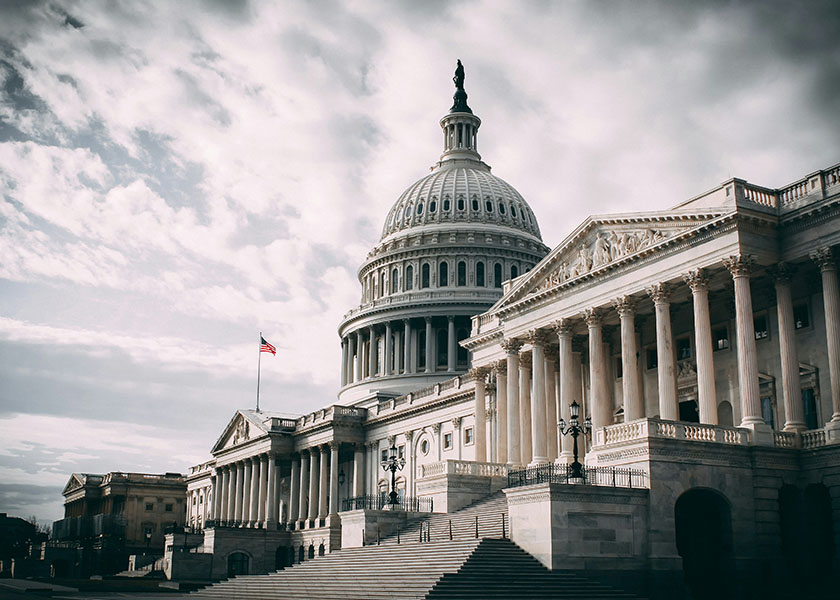Signed into law on July 4, 2025, the *One Big Beautiful Bill Act* (OBBB Act) introduces major changes to taxes, savings, and government benefits. Whether you’re planning for retirement, saving for your family, or running a business, here’s what you need to know.
Key Takeaways for Individuals
Personal Tax Rates Made Permanent
The lower tax rates introduced in 2017 (ranging from 10% to 37%) are now permanent. This gives families and individuals long-term clarity for financial planning.
Larger Standard Deduction
Starting in 2025, the standard deduction permanently increases to:
- $31,500 for married couples filing jointly
- $23,625 for heads of household
- $15,750 for single filers
Seniors 65+ can claim an additional $6,000 per person, helping many avoid paying federal tax on Social Security benefits. This additional deduction phases out at 6% for individual filers over $75,000 income or joint filers over $150,000, fully phasing out at $175,000/$250,000 respectively.
State and Local Tax (SALT) Deduction Increase
The cap on SALT deductions rises to $40,000 (from $10,000) for single filers and joint filers making under $500,000. This benefit will last until 2030, especially helping residents in high-tax states.
Expanded Child Tax Credit
The credit increases from $2,000 to $2,200 per child and will rise with inflation in future years. Income limits still apply; it begins to phase out at $200,000 for single filers and $400,000 for joint filers.
Permanent Charitable Giving Incentives
Starting in 2026, non-itemizers can deduct up to $1,000 (single) or $2,000 (joint) for charitable donations. Itemizers will now only deduct the amount that exceeds 0.5% of their income.
Temporary Deductions for Workers
From now through 2028:
- Workers earning under $150,000 may deduct up to $25,000 in tips.
- They can also deduct overtime pay (up to $12,500 for individuals or $25,000 for couples).
New “Trump Accounts” for Kids
Children born from 2025–2028 are eligible for special savings accounts:
- $1,000 deposited at birth by the federal government
- Parents and others can contribute up to $5,000/year
- Funds can be used for college tuition/credentialing, small business expenditures, first-time home purchases
- Withdrawals are taxed favorably if used for qualified expenses
- Contributions stop at age 18; accounts close (and become taxable) by age 31
Auto Loan Interest Deduction
You can deduct interest on car loans (up to $10,000/year) for U.S.-assembled vehicles through 2028. This benefit phases out for higher-income households.
Permanent Increase to the Lifetime Gift & Estate Tax Exclusion
Beginning in 2026, individuals can transfer up to $15 million (or $30 million per couple) without paying federal estate or gift tax.
Key Takeaways for Business Owners
Tax Breaks for Small Businesses
- The 20% deduction on qualified business income is now permanent.
- More generous rules apply to calculate how much income qualifies.
Major Tax Savings on Investments and Equipment
- Research & Development Costs: Made permanent, businesses can once again fully deduct R&D costs in the year they are incurred (rather than spreading them over five years or 15 years for foreign research) starting in 2026.
- Bonus Depreciation: Extends the “bonus” depreciation provision that allows taxpayers to immediately expense 100% of the cost of qualified property (including most equipment and machinery) acquired after January 19, 2025, and placed in service before January 1, 2030.
- Interest Expense Deductions: Businesses are permanently allowed to include depreciation and amortization when calculating their interest expense limitation under Section 163(j). More favorable rules help capital-heavy industries (e.g., manufacturing, real estate).
Changes to Government Programs and Credits
End of Clean Energy Credits
Several energy-related federal tax credits will end:
- Electric vehicle credits end after Sept. 30, 2025
- Credits for solar panels and energy-efficient home improvements end after December 31, 2025
- Home EV charger credits end after June 30, 2026
Medicaid Cuts
Significant changes to Medicaid may reduce access for some Americans:
- New work and eligibility verification rules
- Some enrollees could face co-pays up to $35 per visit, capped at 5% of family income
- Certain clinics (such as Planned Parenthood) may lose funding
- CBO estimates at least 10.5 million people may lose coverage by 2034
SNAP (Food Assistance) Changes
Work requirements are now stricter:
- Parents with children over age 6 must work 20 hours/week
- Adults aged 55–64 also must meet work requirements
- Exemptions for veterans, foster youth, and others have been rolled back
Tax on Money Transfers Abroad
A new 1% tax applies to money sent from the U.S. to another country (and vice versa) after December 31, 2025.
College Endowment Tax Increase
Colleges with more than 3,000 tuition-paying students with large endowments now face higher taxes on their investment earnings. There is now a multi-tiered rate structure based on “student-adjusted endowment” starting at 1.4% for endowments between $500,000-$750,000 per student, escalating up to 8% for wealthiest colleges (endowments over $2,000,000 per student).
Summary and Conclusion
The One Big Beautiful Bill Act touches nearly every aspect of personal and business finance—from taxes and savings to health care and college planning. While some changes offer relief or new opportunities, others require careful attention and adjustments.
Now is a good time to revisit your financial strategy and ensure you’re taking advantage of the benefits—and prepared for the changes.
Warmly,
Alana Macy, CFP®, MBA, Partner and Wealth Advisor
Sources and Citations:
Congressional Budget Office. “CBO Score Shows Senate OBBBA Adds Over $3.9 Trillion to Debt.” June 28, 2025.
Tax Foundation. “One Big Beautiful Bill Act Tax Policies: Details and Analysis.” July 3, 2025.
Tax Policy Center. “House and Senate Plans Boost Child Tax Credit, Could Help More Low-Income Families.” June 25, 2025.
White House. “MEMO: The One Big Beautiful Bill Improves the Fiscal Trajectory.” June 7, 2025.
White House. “WHAT THEY ARE SAYING: Senate Approves Landmark One Big Beautiful Bill.” July 1, 2025.
This information is not intended to provide specific legal, tax or other professional advice. For a comprehensive review of your personal situation, always consult with a tax or legal advisor.


